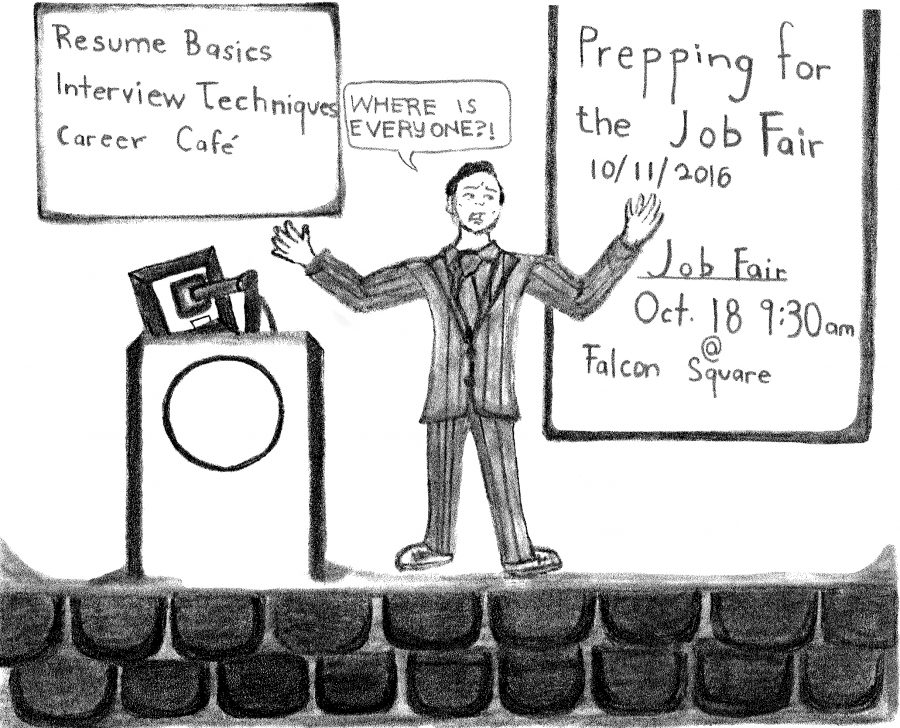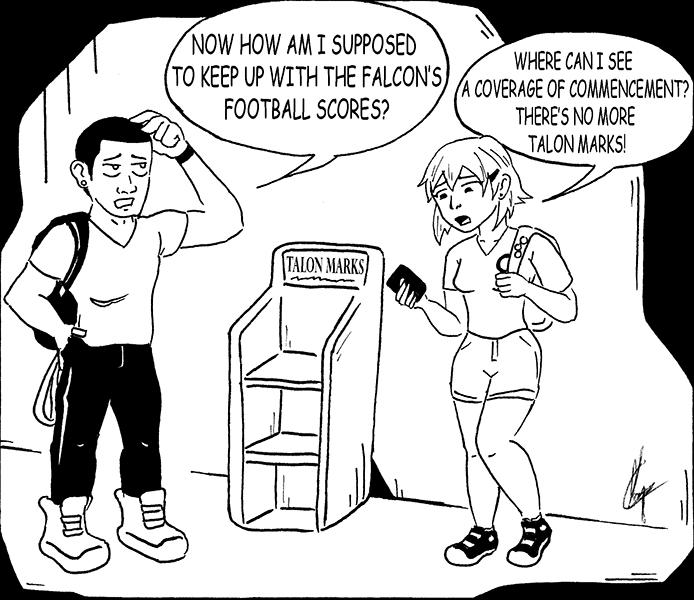College students don’t take advantage of the resources offered on campus like workshops, panels and seminars.
To whom can one point the finger and blame for the lack of participation to these events?
There are several factors which evidently have affected the attendance.
The problem lies with both the student body and hosts of the events.
Scheduling the events seems to fall during time periods when many students are in class.
The school website calendar shows more than half of the workshops that are promoted are scheduled between 11 a.m to noon.
Those who are holding workshops should consider trying out different times to see if that helps the attendance level.
However, scheduling isn’t the only problem these events face, because oftentimes the promotion of workshops is not only limited but is also misleading.
Unless you’re the type who likes to hang around any of the resource centers like the financial aid office, student services, or the library, chances are that you won’t be aware of what’s happening on your campus.
An aspect of promotion that can be improved is where flyers are placed.
There is a tendency to see announcements for workshops pertaining to a field only in the building where the majors tend to be.
While there is logic in placing the ads there, the workshops or seminars could be applicable to other members and majors on campus.
A panel addressing sexual harassment and domestic violence is not an interest that only pertains to those in the social sciences or gender studies department.
While physical ads are an important way of getting the word out for events across campus, most students are constantly on the go and depend on accessing the schedule of events online.
If you manage to navigate the campus website and make it to the campus events calendar page, you’ll find that some workshops are scheduled at 6 a.m. and it’s terrifying to believe that this can actually be true, although you’d be hitting gold with parking.
The misleading advertised time pushes students away, but for those who are a bit more curious will click on the link to find a flyer with the correct time posted.
Faculty and students work hard to make resources available, however there is still room for improvement.
Making sure that the times that workshops are held are displayed correctly online could be a step in the right direction.
The hosts of such workshops are not entirely to blame for the lack of attendance.
The student body is careless about checking out the resources available and attending any seminars or workshops on campus.
Students have failed to actively seek these resources that they often complain about not having.
Some students don’t seem to be bothered either.
The lack of effectiveness for these events to reach students affects both parties which are those hosting and those who don’t attend.
The workshops offered cover various topics including mental health, campus safety, domestic violence, philosophy, resume building and job opportunities.
For those of you who claim that there isn’t a workshop that interests you, chances are that the promotion hasn’t reached you or you haven’t looked closely.
This semester alone has seen more than 20 workshops, yet most of them have an average attendance of 15 people.
In some cases, one can find the events held to a sparse audience.
Such have been the cases for some panels addressing the campus safety and job opportunities.
Not only are people wasting their time and effort trying to offer these resources to the student body, but the student body is missing out on some opportunities.
For example, some of the workshops are about scholarship opportunities, or campus safety and prevention.
During these events people have the opportunity to be informed and interact with experts in specific fields, yet most students do not expose themselves to these opportunities.
In the case of the scholarship workshop, more than seventy thousand dollars were up for grabs, but only the 16 students that attended the workshop were informed.
Next time you’re running around campus, pay attention to the flyers around you, because you could be missing out on some valuable information.
Students need to open their eyes to the resources, and those hosting the events on campus should research on improving their outreach to students.




















